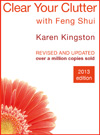Here in the UK our local council has recently announced that between midnight and 6.00am each night, they will soon be switching off half of all street lights in our area except those on main roads. They calculate this will save around £500,000 each year.
This follows a pilot scheme in a town where they turned off two out of every three street lights between midnight and 6.00am for 10 months to monitor whether this resulted in increased crime or complaints of any kind. Satisfied that it did not, they now feel confident enough to roll it out across the county where my husband and I live.
A number of studies in fact substantiate that there is little correlation between reduced street lighting and increased crime. Some have even found that better lighting makes some crimes such as burglary easier.
But the reason I’m delighted by this news actually has nothing to do with crime statistics and everything to do with quality of sleep and health. ‘Sleeping in a dark room is one of our top recommendations for a good night’s sleep,’ says David Cloud, CEO of the US National Sleep Foundation, and I have certainly found this to be true. My test for whether a room is dark enough to sleep in is not being able to see my hand if I hold it up in front of my face.
Darkness during sleep is also a healthier option. Scientists have also known for years that rats raised in cages where lights are left on for much of the night have higher cancer rates than those allowed to sleep in darkness. In humans, many studies have found a correlation between exposure to light at night and increased breast cancer, prostate cancer, diabetes, heart disease, and obesity. Epidemiological studies of nurses, flight attendants, and others who work at night have found breast cancer rates 60% above normal, even when other factors such as differences in diet are accounted for.
The most significant research to date on the health effects of night-time lighting was a 10-year study conducted at the University of Haifa in Israel, in which satellite data obtained from NASA showed in great detail how much light was emitted from various neighbourhoods in Israel. They then overlaid that map with local statistics for breast cancer cases, and to act as a control, lung cancer cases. They corrected for other factors that can affect cancer rates, such as poverty, ethnicity, and the average number of children in families.
They found no link at all with lung cancer but were astonished to discover that in areas with normal levels of outdoor lighting at night, breast cancer rates were 37% higher than average, and in areas where outdoor lighting was very bright and intruded into bedrooms, the breast cancer rate was 64% higher than average. It was already known that women with breast cancer have lower levels of melatonin than normal, and this study established the link between breast cancer rates and the way that night-time lighting suppresses the production of this hormone.
Since then it has been discovered that even a small amount of light can suppress your melatonin production for an entire night, so here’s what the breastcancer.org website advises:
- Install blackout shades on your bedroom windows
- Don’t turn on lights if you wake up at night
- Use low-wattage or red bulbs in night-lights
- Install a low-wattage or red-bulb nightlight in your bathroom
The reason red lights are recommended is that red light does not have the same melatonin-suppressing effects as white light. So if you ever need to use the bathroom during the night, use a flashlight with a red light bulb to get you safely there and back.
If you live in a place where street lighting streams into your bedroom throughout the night, invest in some blackout curtains or blinds. Or better still, petition your local street lighting authority to save themselves some money and you some expense by turning the darn lights off at night. The International Dark-Sky Association’s website provides a host of other good reasons for reducing night-time lighting, ranging from the devastating effect it has on the cycles of nocturnal creatures, to the way urban lighting means most people can no longer see the inspiring beauty of the stars.
Update – November 2016
It’s taken three years for Worcestershire County Council to install timing devices in two out of every three street lights in the county (16,000 in total) so that they can be automatically turned off between midnight and 6.00am. Most people haven’t noticed, and the local police say there has been no discernible increase in crime as a result, so it’s no big deal. Hopefully other regions will be inspired to follow suit.
Copyright © Clear Space Living Ltd, 2013





I have been using a sleep mask for years now and it is fantastic! An awful lot cheaper than installing blinds (not always possible for those in rented accommodation) and it means where ever I go, on holiday or visiting friends I can guarantee enough dark hours to get a good night’s sleep
I work night shifts and sleep in the daytime. I don’t like to shut out the daylight in the room so I use an eye mask to block the light from my eyes and this helps me sleep.
Does the light affect the body via the eyes, or via the skin being exposed to light?
I am pleased I read this, I am always grumbling that my area is too light at night. Now I know it is possible to get the street light outside my bedroom turned off and it isn’t just me, I am going to get on to the council asap! – Hopeful of Brighton, England!